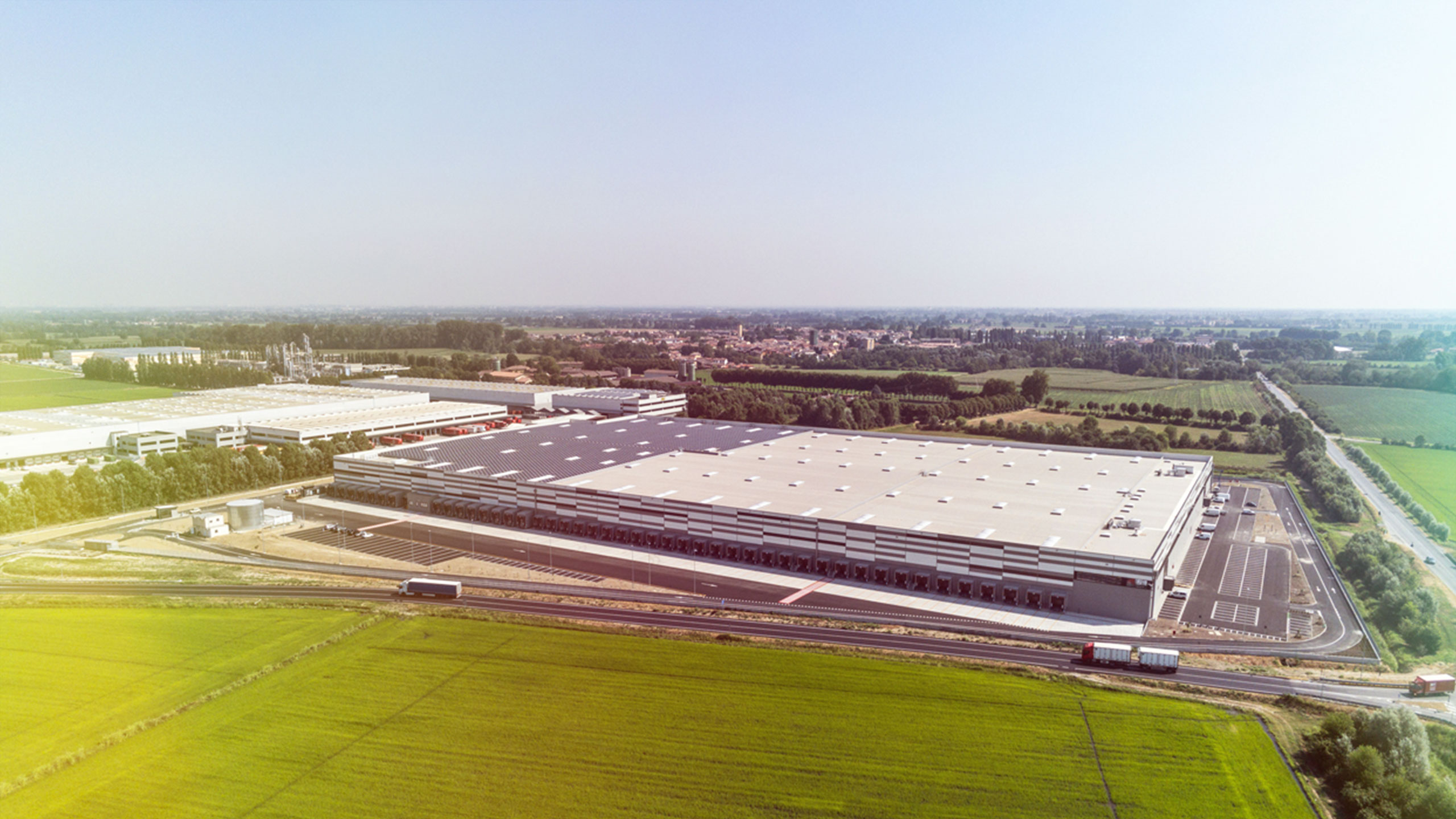
New ALDI regional corporate office in Italy – not only la dolce vita for IT
ALDI SOUTH is a global player: About 90 regional corporate offices are managing more than 7,300 stores in eleven countries and counting. A new one has now been added in Italy, which also poses a challenge for IT.
(Almost) nothing would work without the regional corporate offices: they manage trading, property and accounting for 60 to 120 stores as well as a large warehouse which supplies the stores with core range goods and specials. Each regional corporate office ensures that store operations run smoothly in their area. If a regional corporate office reaches the limits of its storage capacity, a new one is opened – as recently seen in Italy. Sebastian, Senior Project Associate at the international IT department of ALDI SOUTH, explains the role IT played in the opening – and the challenges they had to overcome.
Sebastian, the regional corporate office in Landriano has just opened. Can you tell us what had to be prepared for this?
Sebastian: Of course, gladly. After the decision to establish a new regional corporate office in Italy had been reached, a suitable location then had to be chosen: the Landriano site located south of Milan is a new development area, which means that at the beginning the land had to be purchased, various formalities had to be agreed with the local authorities and a construction company had to be commissioned. Afterwards, the national IT department in Verona informed the international IT department of ALDI SOUTH in Mülheim an der Ruhr about the opening date and the applications that will be needed. This is when our work started.
What were your first steps?
Sebastian: In the beginning, my Country & Region Openings team contacted the Italian national IT department, i.e. the Hardware & Networks team and the Software team, to obtain background information and general conditions and to clarify initial questions about the requirements. For example, it is always of particular importance to us when the internet connection will be needed in the new region and at what point in time financial and buying applications are to be made available.
What is decisive for this?
Sebastian: These milestones often depend on how business operations will develop, for example when the new regional corporate office will receive or ship the first goods. Subsequently, a kick-off meeting was organised with all colleagues/teams involved at international IT in Mülheim an der Ruhr to clarify responsibilities and work packages.
And what happened next?
Sebastian: The IT Buying team purchased the required licences and hardware, such as various servers and network components. These were then set up and configured remotely at the national IT site in Verona by local and international colleagues. Necessary software packages were also installed, such as backup and archiving solutions.
And what needed to be done locally in Landriano in terms of IT?
Sebastian: Meanwhile, the Wide Area Network (WAN) was set up in the new regional corporate office. Each building must always be equipped with two connections in case one line fails. As soon as these tasks were completed, the hardware, especially the servers, was connected to the WAN now available at the new location. Moreover, other applications, such as buying applications and management applications, were installed and configured remotely by our international IT department.
Were there other project steps after that in which IT was involved?
Sebastian: A region opening is always a major event for us at IT, too, even if we finish our work packages long before the final opening. Since such a project is very large-scale and our IT department works on it for months, we are always very eager to see the successful completion of the opening. As soon as the building was constructed and the IT systems were set up, the first employees could move into the new location and start working on site. From then on, the first orders were placed and the warehouse was filled up. Subsequently, the 28 stores, which the new region had taken over from the neighbouring Oppeano region, were supplied with our products. Again, colleagues from international IT were involved in the store transfer. The outbreak of the coronavirus pandemic made it impossible to open new stores at this time.
What were the biggest challenges?
Not even time pressure and coronavirus were able to stop us
Sebastian: Each region is special and is accompanied by its own unique characteristics and challenges. The countries often have additional special features, such as different pallet configurations in Australia. The deadlines to be met are relatively tight. The IT landscape is also constantly changing so that the team always faces new topics. However, the biggest challenge in opening this region was the extreme outbreak of the coronavirus pandemic in Italy, which put a lot of pressure on our schedule and made many new, individual solutions necessary. For example, we needed to introduce a system at short notice to facilitate remote access to the applications on site. All remaining tasks, such as the IT-related store transfer, had to be carried out in observance of significantly increased security measures and – where possible – remotely.
That doesn’t sound like la dolce vita to me.
Sebastian: No, it really doesn’t (laughs). But that is also what fascinates me about my job as a Senior Project Associate, because I rarely encounter the same tasks day in and day out and have to deal with new situations time and again. The international character of the team also ensures that it never gets boring. In the end, thanks to the strong support from our colleagues at international IT as well as the national IT department in Italy, we were able to complete all tasks on schedule, thus ensuring that the opening was a success.
Thank you, Sebastian, for these exciting insights!

